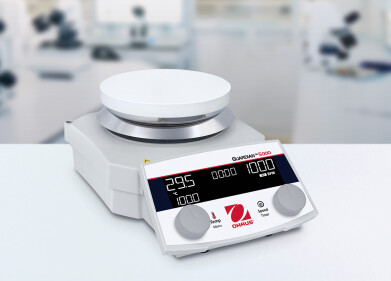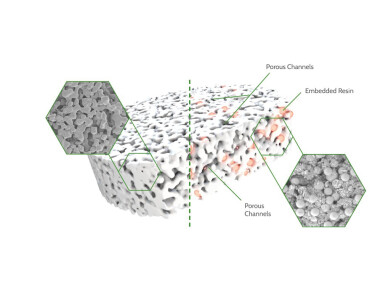Laboratory Products
Create a secure environment for your delicate cells with Panasonic MCO-19 incubator series
Sep 16 2013
Incubators have long been classified as commodity equipment within a laboratory. By supporting both clinical and non-clinical applications from start to finish, they play a vital role throughout many testing processes.
The Panasonic MCO-19 incubator series offers researchers the most stable cell culture environment possible, with outstanding control of CO2 and O2 concentrations and continuous contamination control. This combination delivers significant advantages that assist laboratories in complying with today’s tightening regulations and standards.
CO2 and O2 control
The Panasonic MCO-19 incubator series’ infrared CO2 sensing system provides users with much needed accuracy through the use of a single beam, dual detector. CO2 levels are easily verified on the LCD display, and a CO2 sample port on the front of the incubator permits convenient confirmation of chamber CO2 density.
As well as precisely controlling CO2, the MCO-19M series delivers exceptional control of oxygen levels, essential for cell culture processes requiring very specific O2 concentrations. A long-life zirconia oxygen sensor maintains sub-ambient O2 levels from 1% to 18%, and generates rapid O2 level recovery times. Enriched O2 levels from 22% to 80% can be reached with proper safety precautions in place.
During use, sample and reference wavelengths are measured simultaneously for continuous auto-zero calibration. The electronic PID control ensures high accuracy by preserving temperature and gas set points over the entire system range.
Patented SafeCell UV® system
Panasonic’s SafeCell UV® system helps fight contamination during use, minimalizing interruptions, improving cell growth and reducing the risk of product loss.
The system includes a programmable UV lamp to decontaminate conditioned air and water in the humidifying pan. This thorough decontamination inhibits the growth of mycoplasma, bacteria, moulds, spores, yeasts and fungi without HEPA filters. An automatic UV cycle switches on automatically for a specified period after door opening to eliminate airborne contaminants.
Direct Heat
Panasonic MCO-19 incubator series instruments employ a direct heating system to guarantee highly reactive temperature control in response to door openings. This direct heating is provided by three independent heating sources surrounding the chamber. These are located in the top and rear wall, in the chamber base and outer door, and are controlled by the microprocessor PID control. The innovative outer door heater warms the inner glass door in relation to ambient conditions, preventing condensation and promoting temperature uniformity.
H2O2 decontamination option
The use of low temperature hydrogen peroxide vapour decontamination (HPV) is a popular, safe alternative to ethylene oxide decontamination methods. The optional H2O2 decontamination process delivers a prompt instrument turnaround when a complete decontamination is required. The MCO-19 airflow system circulates air around the chamber throughout the cycle, ensuring all surfaces are reached before the UV lamp breaks down the H2O2 vapour.
The unique design of MCO-19 incubators series permits the safe use of H2O2 decontamination without any impact on the surrounding environment.
These advanced technologies enable Panasonic incubators to provide the most stable cell culture environment possible, together with outstanding control over internal conditions.
Importantly, on-going support from the dedicated team of Panasonic Service Specialists maximises the potential and lifespan of all Panasonic instruments. Panasonic are committed to providing the best possible service to their customers, right from helping with purchase through to the maintenance of equipment.
For more information visit the website.
Digital Edition
International Labmate 49.6 - Sept 2024
September 2024
Chromatography Articles - HPLC gradient validation using non-invasive flowmeters Mass Spectrometry & Spectroscopy Articles - From R&D to QC, making NMR accessible for everyone: Putting NMR...
View all digital editions
Events
Oct 06 2024 Liverpool, UK
Oct 08 2024 Gothenburg, Sweden
Oct 09 2024 Birmingham, UK
Oct 09 2024 NEC, Birmingham, UK
Oct 15 2024 Milan, Italy


















